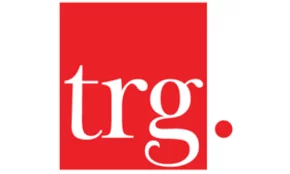Singapore 12 November 2024: Refinery profits are under severe pressure as margins have plunged to multi-year lows, sending shockwaves across the energy sector. The recent collapse in refining margins has been driven by a confluence of global factors, including falling demand for refined products, oversupply of fuel in key markets, and high operational costs. As a result, many refineries are facing unprecedented financial challenges, with some considering production cuts or shutdowns to stem losses.
Refining Margins Hit Hard: Refining margins—the difference between the price of crude oil and the market price of refined products like gasoline, diesel, and jet fuel—are critical for refinery profitability. Recently, margins have dropped to historic lows, with some regions reporting profits per barrel down by over 60% year-over-year. Experts say margins have been under strain from fluctuating crude oil prices combined with weakened demand due to economic uncertainties and shifts in consumer habits.
Global Demand Slowdown Exacerbates Crisis: Demand for refined products has softened amid economic slowdowns in major economies. In the U.S. and Europe, rising interest rates have tempered industrial activity and consumer spending, which in turn has reduced demand for fuels. Additionally, fuel demand has remained sluggish in some emerging markets, where inflation and currency volatility are affecting purchasing power. The decreased need for travel, especially in regions still grappling with post-pandemic economic challenges, has further limited the demand for refined products like jet fuel.
Oversupply of Refined Products Worsens Margins: Meanwhile, several refineries in Asia and the Middle East have recently come online, adding significant new refining capacity to the global supply. This excess supply has outpaced demand, creating a glut of refined products that is driving down prices. In particular, large oil-producing nations with new refinery projects have increased global production, putting even more pressure on refining margins worldwide.
High Operational Costs Compound Issues: Adding to the squeeze, operational costs for refineries have been rising due to inflationary pressures, especially in energy and labor costs. This has further cut into profits, as refineries struggle to balance production costs against declining revenues.
Potential Shutdowns and Reduced Production: The current environment may lead some refineries to temporarily reduce production or even shut down to curb losses. Some companies have already announced plans to idle units or reduce processing rates in response to shrinking margins. Analysts warn that if margins do not improve, more refineries will likely follow suit, which could ultimately impact fuel prices if supply is curtailed significantly.
Outlook Remains Uncertain: Looking ahead, the outlook for refining margins remains uncertain. While some analysts expect a potential rebound if demand picks up or if supply tightens due to production cuts, others remain cautious. Factors such as geopolitical tensions, energy policy shifts, and economic conditions will continue to play a major role in determining the profitability of refineries in the coming months.
For now, the refining industry faces a tough road ahead, with profits under intense pressure and the potential for further operational changes as companies try to weather the margin collapse.
This trend has not spared National Refinery Limited (NRL), which reported a substantial loss after tax of Rs. 7,237 million for the quarter. This marks a dramatic reversal from the Rs. 3,203 million profit recorded in the same period last year, resulting in a loss per share of Rs. 90.50 compared to last year’s earnings per share of Rs. 40.05.
Fuel Segment Performance Declines Amid Low Demand and Competitive Pressures: NRL’s fuel segment reported a heavy loss after tax of Rs. 6,676 million, a stark contrast to the Rs. 1,995 million profit achieved in the corresponding period last year. Declining global oil prices and low product margins have led to inventory and operational losses. Lower demand for High-Speed Diesel (HSD) due to high stock levels across refineries and Oil Marketing Companies (OMCs) and an influx of low-cost, inferior-quality fuel through porous borders have contributed to the segment’s weak performance. Additionally, furnace oil sales have dropped due to a shift in electricity generation towards more cost-effective alternative energy sources, leading NRL to export 36,284 metric tons of furnace oil at a lower price than the local market.
On a positive note, NRL did see some improvement in the sales of motor gasoline compared to the previous year’s quarter. The refinery maintained its throughput at 48% during this quarter, mirroring last year’s operational level. NRL anticipates a potential recovery in future quarters as oil prices are starting to rise again in the international market, which may positively impact the company’s financial results.
Lube Segment and Increased Financing Costs Add to Challenges: NRL’s lube segment also experienced setbacks, with a loss after tax of Rs. 561 million compared to a profit of Rs. 1,208 million in the same period last year. This decline resulted from lower product margins amid a falling price trend, even as sales of lube base oils increased in the local market.
The company’s working capital requirements remain high, primarily driven by the need to finance operations and losses. Despite lower bank borrowing rates, NRL’s mark-up costs surged to Rs. 2,568 million this quarter, up from Rs. 1,825 million last year. However, the company expects potential cost savings in interest expenses due to repricing arrangements with certain banks and potential policy rate reductions amid falling inflation.
Policy Uncertainty and Project Impacts: In response to ongoing industry challenges, the Pakistani government extended the deadline for refinery upgrades under the revised ‘Pakistan Oil Refining Policy for Upgrading Brownfield Refineries 2023’ by six months, until October 22, 2024. NRL and other refineries are in discussions with the Ministry of Energy regarding tax policies that have exempted key petroleum products from sales tax. This exemption has impacted refineries’ input sales tax and increased project costs, adding pressure to the viability of ongoing operations amid declining margins and oil prices. NRL remains hopeful for a favorable resolution to these issues to support both current and future refinery projects.
Global Refining Pressures Reflect Broader Trends: The challenges faced by NRL mirror broader global trends, with companies like TotalEnergies and Sinopec reporting substantial quarterly profit declines due to falling refining margins. TotalEnergies reported a 37% year-on-year drop in net income for Q3 to $4.1 billion, while Sinopec’s profit halved to $1.2 billion due to weaker diesel demand and refining challenges.
NRL expressed gratitude to shareholders, customers, staff, and the Ministry of Energy for their support during these challenging times, and remains focused on weathering the current margin collapse while positioning for a recovery should market conditions improve.











